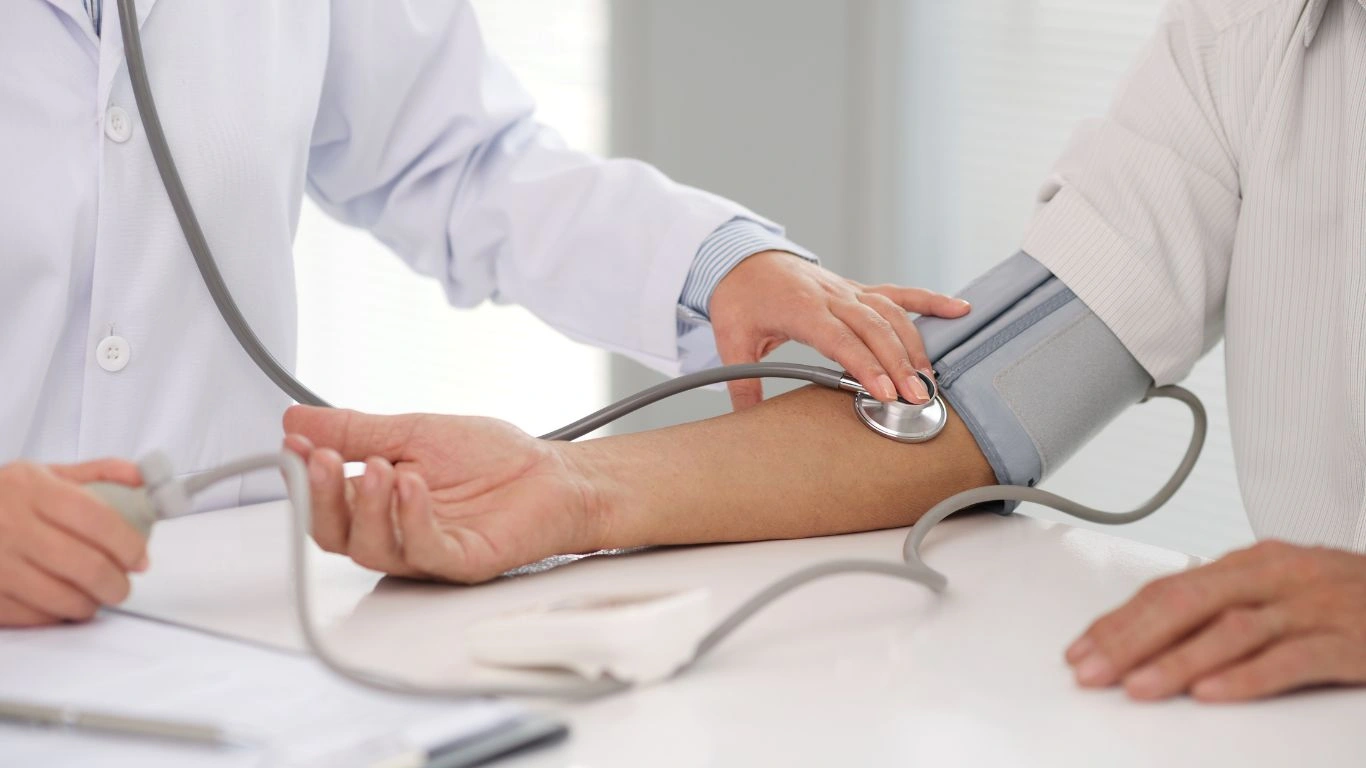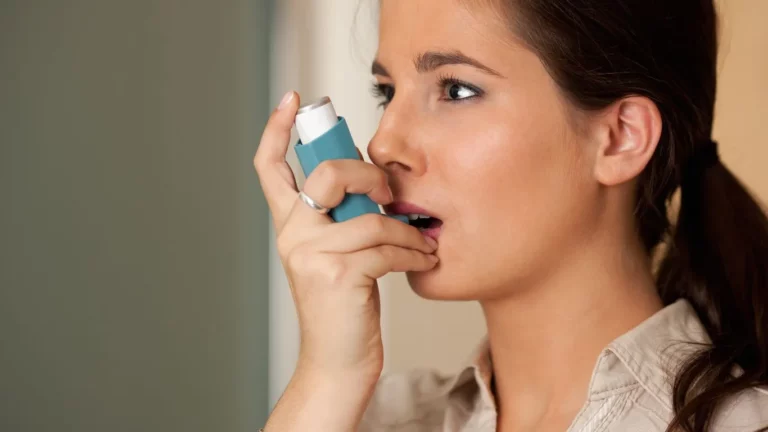Can Hot Weather Cause Blood Pressure Drops? The Surprising Impact on Your Health
As someone who has spent years working in internal medicine and specializing in hypertension management, I’ve often been asked about the relationship between weather and blood pressure. It’s a question that pops up especially during the hotter months: *Can hot weather cause blood pressure drops?* I get it—suddenly, the mercury rises, and we start thinking about how our bodies react to temperature changes. And yes, the weather can definitely have an impact on your blood pressure, but it’s a bit more complicated than just “hot weather causes drops.” Let’s break this down together, looking at what happens inside your body during hot weather and how that affects your blood pressure.
Understanding Blood Pressure: The Basics
Before we dive into the specifics of how heat affects your blood pressure, let’s take a quick step back and review what blood pressure is, especially since many of us live with high or low blood pressure on a daily basis. Blood pressure is the force exerted by the blood against the walls of your arteries as your heart pumps it around your body. It’s measured in two numbers: systolic and diastolic. The systolic pressure (the top number) measures the pressure when your heart beats, while the diastolic pressure (the bottom number) measures it when your heart is resting between beats.
If your blood pressure is consistently high or low, it can lead to a number of health issues. High blood pressure (hypertension) is a major risk factor for heart disease, stroke, and kidney problems, while low blood pressure (hypotension) can cause dizziness, fainting, and organ damage in extreme cases. With that in mind, let’s explore how the weather, particularly heat, might impact these numbers.
How Hot Weather Can Affect Your Blood Pressure
During hot weather, your body goes into overdrive trying to regulate your internal temperature. The primary way it does this is through sweating, which helps cool you down. But this process can have an indirect effect on your blood pressure, and here’s why.
The Role of Sweating and Fluid Loss
When the weather heats up, you sweat more to keep your body cool. This is natural and essential, but as you lose fluids, your blood volume decreases. Since your blood pressure is, in part, determined by how much blood is circulating through your body, less blood can lead to lower blood pressure. This is why some people may experience a drop in blood pressure when the temperature rises.
If you’re not staying hydrated, you might be more susceptible to a drop in blood pressure. Dehydration can cause your blood vessels to constrict, further reducing blood flow and contributing to the feeling of dizziness or lightheadedness that some people experience in the heat.

How Your Body Responds to Heat
Another factor that plays into how hot weather affects blood pressure is the way your body adjusts to heat. When you’re exposed to higher temperatures, your blood vessels naturally dilate, which is your body’s way of trying to cool you down by increasing blood flow to the skin. This widening of blood vessels, also known as vasodilation, can lower your blood pressure, because it allows blood to flow more freely.
It’s important to note that this effect is typically mild for most people, but if you already have low blood pressure or are dehydrated, it can become more pronounced. This can leave you feeling weak or faint, especially if you’re standing up too quickly or exerting yourself in the heat.
Can Hot Weather Lead to a Dangerous Drop in Blood Pressure?
For the majority of people, the drop in blood pressure from hot weather isn’t something to be overly concerned about. However, it’s definitely something to be mindful of, especially if you have underlying conditions like heart disease or if you’re already on medication that affects your blood pressure.
If your blood pressure drops too much, you might experience symptoms like dizziness, fainting, and weakness. In extreme cases, it can lead to a condition known as heat exhaustion, where your body can’t cool down efficiently and you start to feel nauseous, lightheaded, or excessively thirsty.
At-Risk Populations
While most healthy individuals can manage the changes in blood pressure caused by hot weather, certain groups are more vulnerable. These include:
- Older adults: As we age, our bodies have a harder time regulating temperature, and blood vessels may not respond as efficiently to heat.
- People with hypertension: If you already have high blood pressure, your body’s ability to adapt to changes in temperature may be impaired.
- People on blood pressure medication: Medications like diuretics or beta-blockers can make you more prone to dehydration and lower blood pressure during hot weather.
Signs That Hot Weather May Be Affecting Your Blood Pressure
It’s not always obvious when hot weather is having a direct impact on your blood pressure, but there are a few signs you can watch for. These include:
- Dizziness or lightheadedness, especially when standing up quickly
- Feeling weak or fatigued, even without physical exertion
- Headaches, which can sometimes accompany low blood pressure
- Nausea or vomiting, particularly if you’re feeling overheated
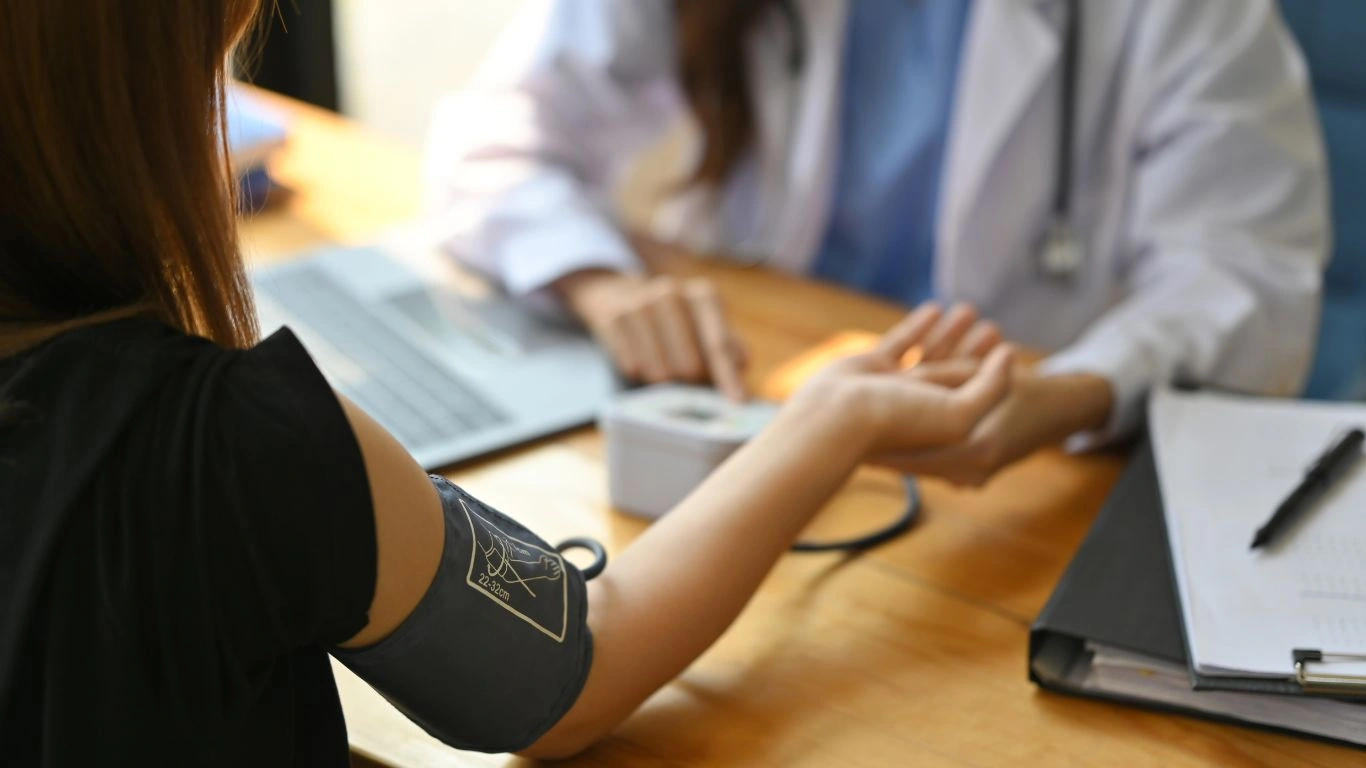
What You Can Do to Prevent Blood Pressure Drops in the Heat
Fortunately, there are some simple steps you can take to protect your blood pressure when the temperature rises. Here’s what I recommend:
- Stay hydrated: Drink plenty of water throughout the day to prevent dehydration. Avoid alcohol and caffeine, which can contribute to dehydration.
- Take it easy in the heat: If possible, limit strenuous activity during the hottest part of the day. If you must exercise or do outdoor work, try to do so early in the morning or after the sun sets.
- Wear loose, light clothing: Lightweight and breathable fabrics can help keep your body cool and prevent overheating.
- Monitor your symptoms: Pay attention to any signs of dizziness, weakness, or fainting, and take a break in a cool environment if needed.

Can Heat-Induced Blood Pressure Drops Be Dangerous? Understanding the Risks
While many people may experience a mild drop in blood pressure when the heat kicks in, for some, it can be more concerning. As I mentioned before, your body reacts to heat by dilating blood vessels and releasing fluids through sweating to maintain a stable internal temperature. For most healthy individuals, these changes aren’t anything to worry about. But if you’re in a vulnerable group—such as those with pre-existing heart conditions, older adults, or people with certain medications—there could be risks to consider.
When Blood Pressure Drops Too Low
A mild drop in blood pressure from hot weather is usually nothing to fret about, but when your blood pressure drops too much, it can lead to some unpleasant and even dangerous symptoms. If blood pressure falls below a certain threshold, it can result in dizziness, fainting, or confusion. The issue with these symptoms is that they can lead to accidents like falls, which is particularly concerning for the elderly. If the body isn’t able to adjust quickly enough, it can also result in heat exhaustion, which is a more serious condition that requires immediate attention.
In my experience, many patients come to me with a sudden onset of dizziness or lightheadedness when stepping out into the heat, and it often takes a while to realize it’s related to blood pressure. It’s easy to overlook the connection, but it’s essential to address it before it gets worse. So, how do we manage the situation? Let’s take a look at some tips to ensure your blood pressure stays balanced and doesn’t cause additional issues during the hotter months.
How to Manage Blood Pressure During Hot Weather
Taking proactive steps to manage your blood pressure during hot weather is key to maintaining your health and avoiding any unwanted health scares. I always tell my patients that prevention is often the best medicine, and when it comes to staying safe in the heat, there are several strategies that can help.
Hydration: A Crucial Factor in Blood Pressure Control
First and foremost, hydration is your best friend in the summer. If you’re sweating a lot and not drinking enough fluids, dehydration can cause your blood volume to drop, resulting in lower blood pressure. Think of it this way: your blood is like a delivery system, and if you don’t have enough fluid in your system, your blood can’t move as efficiently through your body. This can cause blood pressure to drop.
When you’re dehydrated, not only does your blood volume decrease, but your kidneys also begin to release a hormone called renin, which can tighten your blood vessels and lead to further drops in blood pressure. To prevent this, make sure you’re sipping water throughout the day, and if you’re out in the heat, it’s a good idea to keep electrolyte drinks on hand as well. Electrolytes like sodium and potassium help to retain water and maintain blood pressure levels, which can be especially important in extremely hot conditions.
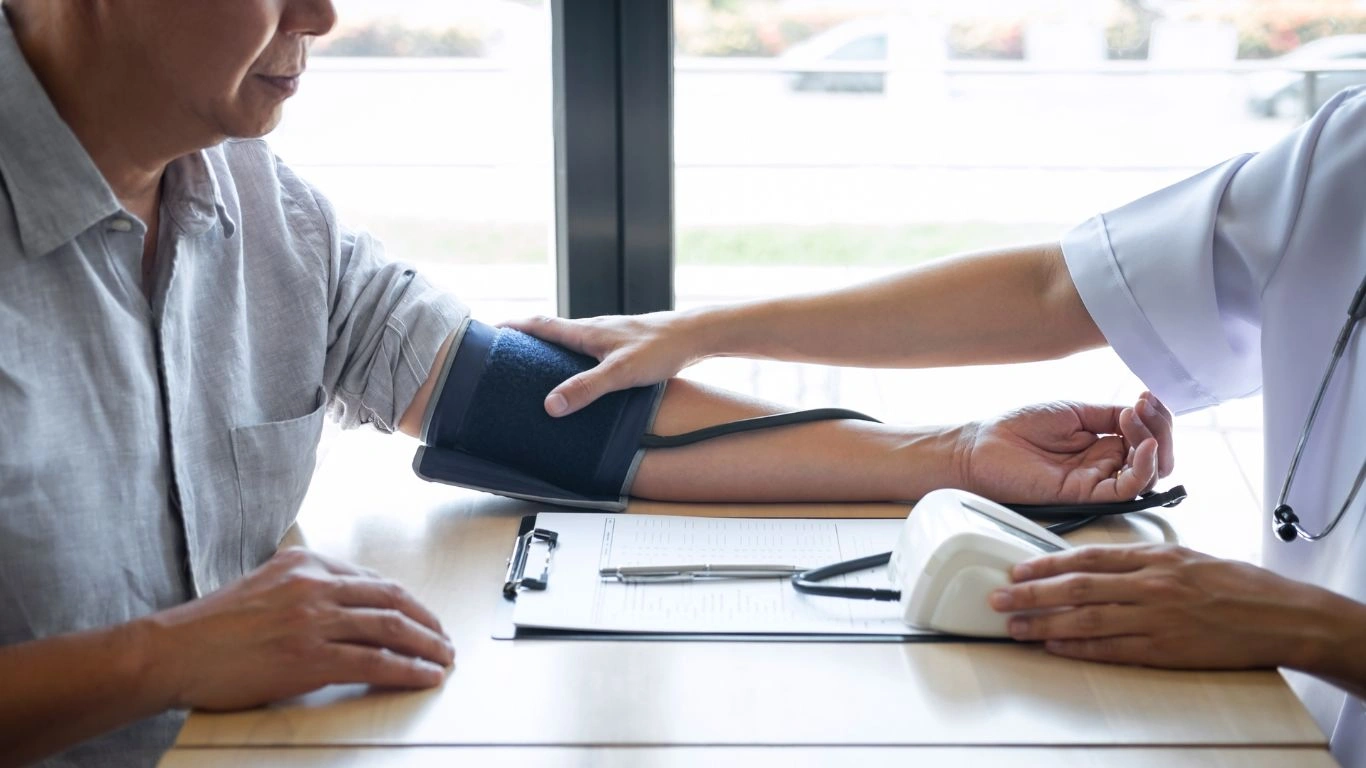
Keep Cool: Limit Heat Exposure
Now, if you’re already noticing some changes in your blood pressure when the weather heats up, it’s essential to manage your exposure to extreme temperatures. The best way to avoid the negative effects of hot weather on your blood pressure is to stay cool. I’ve had patients tell me that they don’t realize how much their body struggles with heat until they’re out in it for too long. Prolonged exposure to hot temperatures puts stress on the body’s systems, which in turn can affect your blood pressure.
During the summer, try to limit outdoor activities during the hottest parts of the day, typically between noon and 3 PM. If you must be outside, wear lightweight clothing, use sunscreen, and find shade whenever possible. And don’t forget to take breaks, especially if you’re working outdoors. Even just stepping into a cooler environment for a few minutes can help your body recover and regulate its temperature, preventing drastic changes in your blood pressure.
Understanding the Importance of Rest
Another thing to consider when managing blood pressure in hot weather is rest. Just like how we’re advised to rest and relax to manage stress, heat also demands a bit of rest for the body. High temperatures can be physically exhausting, and constant activity in the heat can overwork your cardiovascular system, causing your blood pressure to fluctuate unpredictably. During especially hot days, it’s important to take regular breaks and rest in a cool, comfortable space. A little downtime goes a long way toward ensuring your body can manage the heat without pushing your blood pressure too far down.
Medications and Blood Pressure Management in Heat
If you’re someone who takes medication to manage your blood pressure, it’s particularly important to be mindful of how heat affects your body. Many blood pressure medications, such as diuretics or calcium channel blockers, can make you more susceptible to the effects of hot weather. Diuretics, for example, increase the amount of urine your body produces, which can lead to dehydration, and that’s a major culprit in lowering blood pressure. On the other hand, calcium channel blockers are often prescribed to lower blood pressure, and they can also increase the risk of low blood pressure during hot weather.
If you’re on medication, I recommend checking in with your healthcare provider as summer approaches. It’s possible they may need to adjust your medication dosage or suggest additional steps to take when you’re out in the heat. I’ve had many patients who have successfully managed their blood pressure by making small changes to their routine or medication, especially during the hotter months.
Signs of Low Blood Pressure That Require Attention
While many people experience mild symptoms of low blood pressure in the heat, it’s important to know when to seek medical attention. If you begin to feel extremely dizzy, faint, or have trouble concentrating, those are red flags. If these symptoms persist, it’s essential to get out of the heat and hydrate immediately. In some cases, a severe drop in blood pressure can lead to a loss of consciousness or even shock, which requires emergency medical care. So don’t brush off symptoms—pay attention to what your body is telling you and act accordingly.

When to Seek Medical Help for Heat-Related Blood Pressure Issues
If you’re experiencing any of the following symptoms, it may be time to see your healthcare provider:
- Severe dizziness or fainting spells that don’t improve with hydration and rest
- Chronic fatigue or weakness that doesn’t subside after resting
- Unusual confusion or difficulty focusing
- Constant nausea or vomiting, especially if you’re unable to drink fluids
These symptoms can sometimes indicate more than just a temporary drop in blood pressure and could point to other health complications that require professional attention. So always err on the side of caution—it’s better to check in with your doctor than to let things escalate.
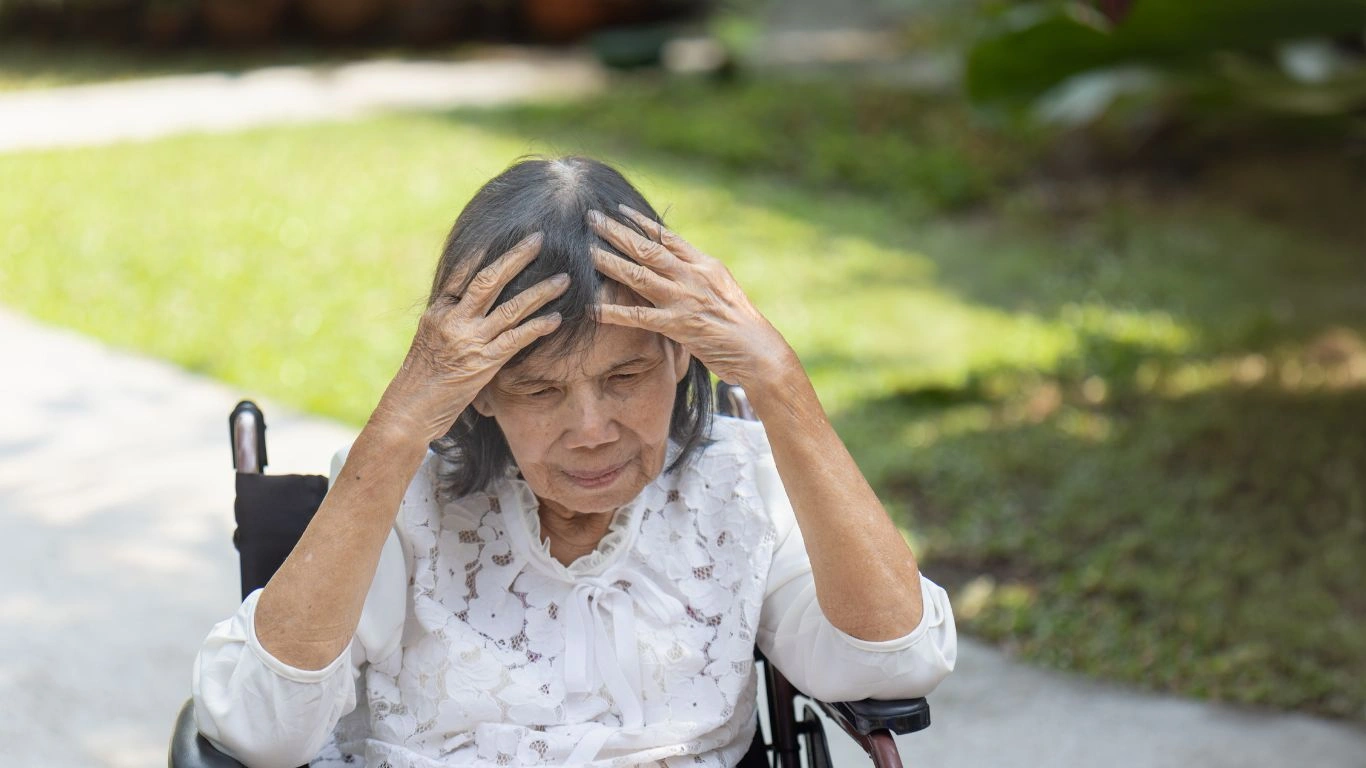
When Should You Worry About Blood Pressure Changes in the Heat?
We’ve already discussed how heat can affect blood pressure, and it’s clear that most of the time, minor changes in blood pressure during hot weather are nothing to panic about. But as with anything in health, it’s important to know when things are moving from the realm of “mild discomfort” to something more serious. While feeling slightly dizzy or lightheaded in the heat is common, there are certain situations where you should be more concerned and seek medical attention right away.
What to Do if Your Blood Pressure Drops Too Low in the Heat
If you’ve followed all the tips to stay cool, hydrated, and rested, but you still find yourself feeling excessively faint or weak in hot weather, it may be time to consider that your blood pressure is dropping dangerously low. In these cases, symptoms like nausea, confusion, extreme fatigue, and difficulty concentrating are signals that your body isn’t able to compensate for the heat in the usual way. These symptoms shouldn’t be ignored, and if they persist, it’s crucial to take steps to treat the problem immediately.
From my own experience, I’ve seen many patients think they can “power through” those mild signs of dizziness, only to end up with more serious complications like fainting or heat exhaustion. So, if you’re feeling anything more than the usual “heat fatigue,” it’s always a good idea to play it safe and head to a cool, safe place. And if you don’t improve after resting and hydrating, don’t hesitate to get in touch with your healthcare provider.
When to Seek Medical Help Immediately
There are situations where you should get help immediately if you think the heat is severely affecting your blood pressure. For example, if you faint or feel like you’re going to pass out in the heat, this could be a sign of a significant drop in blood pressure. Similarly, if you experience extreme confusion, irregular heartbeats, or trouble breathing along with the typical heat-related symptoms, you could be dealing with something more severe, like heat stroke.
In these cases, it’s always best to err on the side of caution. I’ve always told my patients that even if you’re unsure whether it’s serious, it’s better to seek help than to wait and risk it escalating. Health professionals can determine whether you need fluids, cooling treatment, or other interventions to prevent further issues.
How To Adjust Your Lifestyle for Blood Pressure Management in the Heat
Managing blood pressure in hot weather doesn’t just mean dealing with immediate symptoms—it’s about making lifestyle adjustments that help you handle the heat in a way that supports your cardiovascular health over the long term. Here are a few additional ways you can make sure your body stays in good shape, no matter how high the temperature gets.
Daily Habits to Support Healthy Blood Pressure Year-Round
Even though the heat may be temporary, the habits you build around blood pressure management are ongoing. Staying healthy in hot weather means building sustainable habits that protect your body throughout the year. A key part of managing your blood pressure in the heat is maintaining a regular exercise routine and following a heart-healthy diet.
For example, regular exercise helps improve blood flow, making your body more efficient at regulating its temperature. This is especially important in the summer when your heart needs to work a little harder to help you stay cool. Moderate activities like walking, swimming, or cycling can help you stay fit without putting too much strain on your heart.
Additionally, a balanced diet with a focus on foods that support heart health—like those rich in potassium, magnesium, and fiber—can help maintain healthy blood pressure. I’ve found that many patients don’t realize how much their sodium intake is affecting their blood pressure. So, when you add summer foods to your routine (like fresh fruits and vegetables), it can help maintain electrolyte balance and make your body more resilient to hot weather.

Use Cooling Techniques to Stay Comfortable
We all know that sometimes the heat can be overwhelming. It’s not just about hydrating and resting, but also about using some cooling techniques to help you stay comfortable in extreme temperatures. For instance, when it’s sweltering outside, using fans or air conditioning at home can make a big difference in maintaining a stable body temperature.
In addition, wearing loose, breathable fabrics that allow your skin to cool naturally can be helpful. This not only makes you feel more comfortable, but it also helps your body avoid the excessive sweating that can lead to dehydration and a drop in blood pressure. If you’re outdoors, don’t underestimate the power of shaded areas or even a wet towel on the neck to cool down more effectively.
Monitoring Blood Pressure During Hot Weather
If you’re already managing blood pressure issues, it can be helpful to track your blood pressure more regularly during the hotter months. If you don’t have a home blood pressure monitor, I recommend getting one—especially if you’re on medication. Monitoring your blood pressure gives you more insight into how your body is responding to the weather and if any changes need to be made to your lifestyle or medication. By tracking it, you can also catch any worrying trends early, so you can make adjustments as needed.
Plus, it gives you the peace of mind of knowing exactly where you stand, rather than wondering whether that dizziness or fatigue is just a temporary side effect of the heat.
References and Resources
If you’re looking for more information about managing your blood pressure in the heat or understanding how hot weather impacts your cardiovascular health, there are plenty of reputable resources available. Here are some websites where you can find trustworthy information:
- Health.com – Provides articles and advice on managing blood pressure and other health conditions, including in hot weather.
- National Institutes of Health (NIH) – The NIH offers research-based health information, including studies on the effects of temperature on blood pressure.
- Centers for Disease Control and Prevention (CDC) – Their website is full of resources about heat-related illness and how to stay safe in extreme temperatures.
Disclaimer
While this article provides general information on how hot weather can affect blood pressure, it’s important to consult your healthcare provider before making any changes to your health routine, especially if you have existing health conditions or are on medication. Always seek medical advice tailored to your specific health needs. This content is not intended to diagnose, treat, or cure any conditions.

Dr. Gwenna Aazee is a board-certified Internal Medicine Physician with a special focus on hypertension management, chronic disease prevention, and patient education. With years of experience in both clinical practice and medical writing, she’s passionate about turning evidence-based medicine into accessible, actionable advice. Through her work at Healthusias.com, Dr. Aazee empowers readers to take charge of their health with confidence and clarity. Off the clock, she enjoys deep dives into nutrition research, long walks with her rescue pup, and simplifying medical jargon one article at a time.

